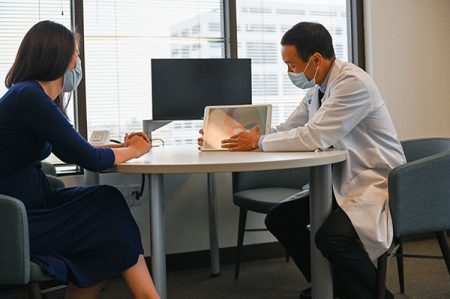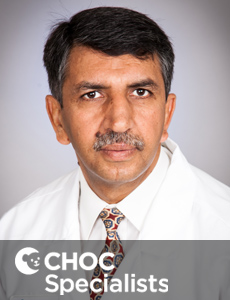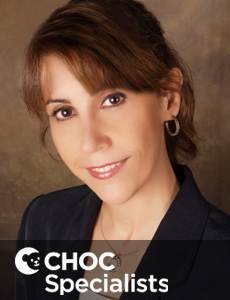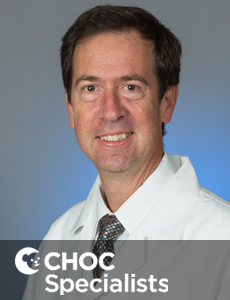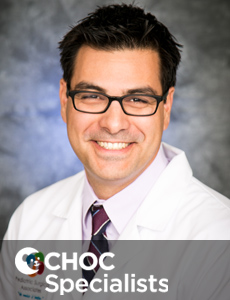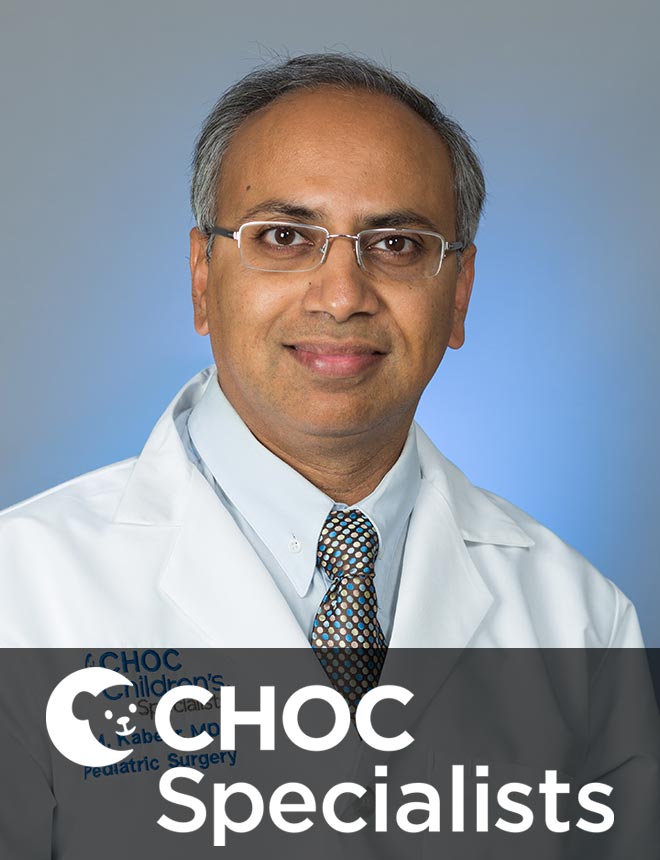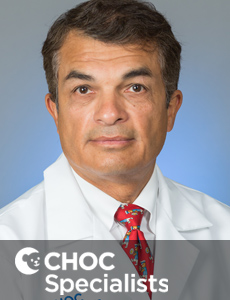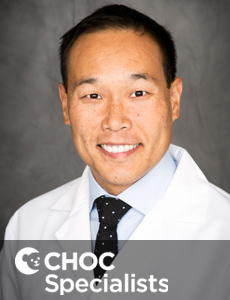Frequently Asked Questions About Sacrococcygeal Teratoma
What types of sacrococcygeal teratomas are found in children?
There are four types of sacrococcygeal teratomas:
- Type I – The tumor is on the outside of the baby’s body.
- Type II – The tumor is on the outside the baby’s body as well as inside the body, within the pelvis or abdomen of the baby.
- Type III – The tumor is mostly inside the baby’s body but has an external part as well.
- Type IV – The tumor is completely inside the baby’s body and is located in the pelvis between the rectum and the sacrum. Because it is inside the body, it is often not diagnosed until your child is older.
How are sacrococcygeal teratomas diagnosed?
Sacrococcygeal teratomas may be found during a prenatal ultrasound. Your doctor will likely order additional tests, including a fetal MRI, to provide a better understanding of the size, shape and any effects of the tumor on your unborn child.
During pregnancy, your doctor will use frequent ultrasounds to carefully monitor the size of the sacrococcygeal teratoma. If the teratoma tumor grows too quickly and becomes too large, it can put a lot of stress on your baby’s body and can lead to heart failure. One sign of heart failure is hydrops, which is when excess fluid develops in different places in your baby’s body. The fluid surrounds the internal organs, such as the heart, liver and lungs, and prevents them from working properly.
Babies with large sacrococcygeal teratomas are often delivered by a cesarean section to protect the tumor from breaking open and bleeding during birth. Often, fetuses with large tumors are born prematurely and need expert perinatal care from a multidisciplinary team.
If your baby has been diagnosed with a sacrococcygeal teratoma while you are pregnant, consider prenatal counseling with a pediatric general surgeon. This can help you plan for your baby’s necessary care.
Sometimes a sacrococcygeal tumor is not diagnosed until after your baby is born. An external tumor may be found during a physical exam, or when your baby shows signs of not being able to urinate or have a bowel movement. An internal tumor may not be diagnosed until other symptoms present, such as:
- Lower back pain
- Symptoms related to the genital and urinary organs
- Gastrointestinal (GI) symptoms, most commonly constipation
- In rare cases, sacrococcygeal tumors cause partial paralysis of the legs, and tingling or numbness.
How is sacrococcygeal teratoma treated?
Prenatal management of sacrococcygeal teratoma requires the coordinated efforts of an expert perinatal team, pediatric surgeons and neonatologists. They can help plan the birth and timing of surgery to remove the tumor.
Typically, the tumor is surgically removed several days after birth. The surgery involves removing the tumor along with the tailbone (coccyx). If your baby’s tailbone is not removed there is a good chance the tumor will return.
Most newborns who have surgery for sacrococcygeal teratomas live a healthy life with normal bowel function and only a small chance of further complications. Your pediatric surgeon will monitor your child for the first few years of life to make sure they continue to do well.
In rare instances when the resected tumor is found to be malignant, a team of pediatric oncologists at the Hyundai Cancer Institute at CHOC will be consulted to create a treatment plan for your child. The type of cancer treatment your child receives will vary based on many factors, including where the tumor is located, the baby’s overall health and if the tumor has spread.
